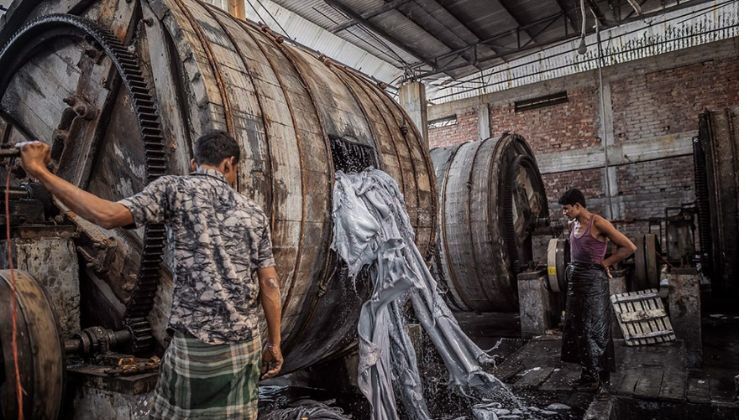
In an innovative effort to address the mounting solid waste challenges faced by tanneries in the Savar Tannery Industrial Estate, a Chinese firm has launched a project to convert tannery waste into high-value export products. Owned by Wenzhou Yuanfei and Pingyang of China, Bangladesh JW Animal Protein Co Ltd has set up a gelatine production facility in Savar and intends to grow its business to include industrial protein powder made from tannery waste.
The company’s initiative aims to utilise waste materials such as wet blue leather scraps and chrome shaving dust to produce these products, which are primarily intended for export to China and Russia, targeting markets eager for high-quality gelatine used in pharmaceuticals and capsule manufacturing, as well as protein powder used in leather processing.
This project is Bangladesh’s first and only foreign-invested business devoted to turning leather waste into these valuable items. To make garbage collection and processing easier, the firm and the Dhaka Tannery Industrial Estate Waste Treatment Plant Company Ltd (DTIEWTPCL) signed a memorandum of understanding on 8th April.
JW Animal Protein is prepared to progressively gather chrome shaving dust from the tannery estate and establish a facility on nine acres in Nayarhat, Savar, outfitted with an Effluent Treatment Plant (ETP), according to Golam Shahnewaz, managing director of DTIEWTPCL. In order to soften finished leather, the plant will concentrate on turning chrome dust into industrial protein powder and removing gelatine from raw hide trimmings.
Shahnewaz emphasised that the initiative represents a significant milestone in Bangladesh’s waste management efforts, especially given the previously prevalent illegal diversion of chrome shaving dust into animal feed supplies, a practice that posed health risks due to chromium contamination.
Waste management in the Savar tannery estate is still difficult despite advancements. Solid waste has frequently been dumped in the open, contributing to environmental pollution and impeding the achievement of Leather Working Group (LWG) certification, a globally recognised sustainability standard, whereas liquid waste is treated at the Central Effluent Treatment Plant before being released into the Dhaleshwari River.
JW Animal Protein’s Parvez Khan emphasised that the company wants to reduce dependency on imports and the environmental risks associated with unprocessed tannery waste by producing 5,000 tonnes of gelatine and protein powder for export each year. “Our protein powder will be used in leather processing to soften leather, providing a sustainable solution,” he added, adding that gelatine is in great demand globally for medicinal capsules.
As Bangladesh continues its efforts to improve tannery waste management and achieve sustainability standards, the partnership between JW Animal Protein and local authorities signals a promising step forward in transforming environmental liabilities into valuable export commodities.






